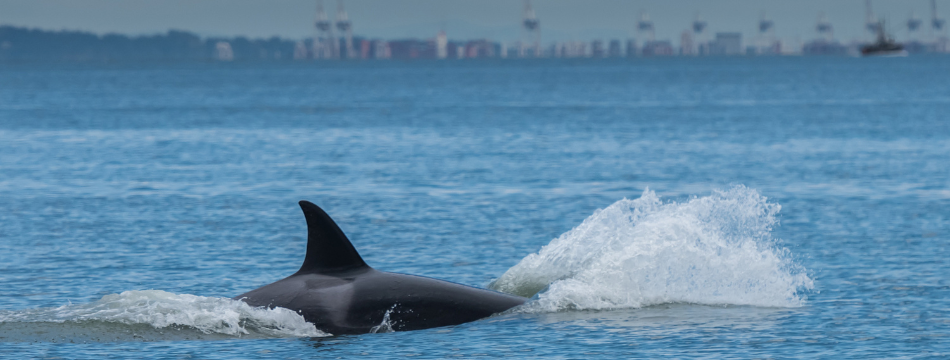GSA and our allies are back in court
On April 20th 2023, the federal government approved the dramatic expansion of the Port of Vancouver in the form of a three-berth container terminal, called Roberts Bank Terminal 2 (RBT2). Despite the approval, the project still needs additional permits and must go through other processes to start construction and, therefore, there are still ways to stop it.
As a first step, Georgia Strait Alliance, along with our allies at David Suzuki Foundation, Raincoast Conservation Foundation and Wilderness Committee, represented by Ecojustice, legally challenged the project’s approval in the form of a judicial review in late June, 2024.
Our lawyers argued that the approval is unlawful because a project cannot be deemed “justified” under environmental assessment legislation when it is contrary to the Species at Risk Act. We eagerly await the decision to this judicial review, which will be announced anytime now.
Campaign news

A big biodiversity threat
The $3.5 billion expansion project is right at the heart of the Fraser River Estuary, one of North America’s most biodiverse areas. If the expansion is built, it will add an additional 2.4 million 20-foot shipping containers every year to the waters of the Salish Sea.
The project’s approval came despite significant public opposition from environmental groups, scientists, labour unions, and thousands of Canadians. It also ignored the large body of evidence, including the government’s own Independent Review Panel, indicating that the project will have lasting and irreversible adverse environmental effects that will further endanger Southern Resident orcas, wild Pacific salmon, and one hundred more already at-risk species. Millions of birds also face colossal threats as they migrate along the Pacific Flyway, and heavily depend on the Fraser Estuary habitat.
This project will threaten highly biodiverse and at-risk habitat the size of 330 football fields, furthering the unprecedented biodiversity crisis, while increasing tanker traffic, underwater noise, oil spill risk, and climate destabilization.
Putting the economy, at all costs, above the environment is the reason we’re experiencing such alarming biodiversity loss and impacts from climate change.
Image: Jason Puddifoot
Effects on Southern Resident orcas
Effects on Pacific Salmon
Environmental Assessment
Ways to get involved:
- Sign up for our monthly e-newsletter for campaign updates & actions
- Connect with us on Instagram, Facebook, X, and LinkedIn
- Donate to help stop this harmful project


